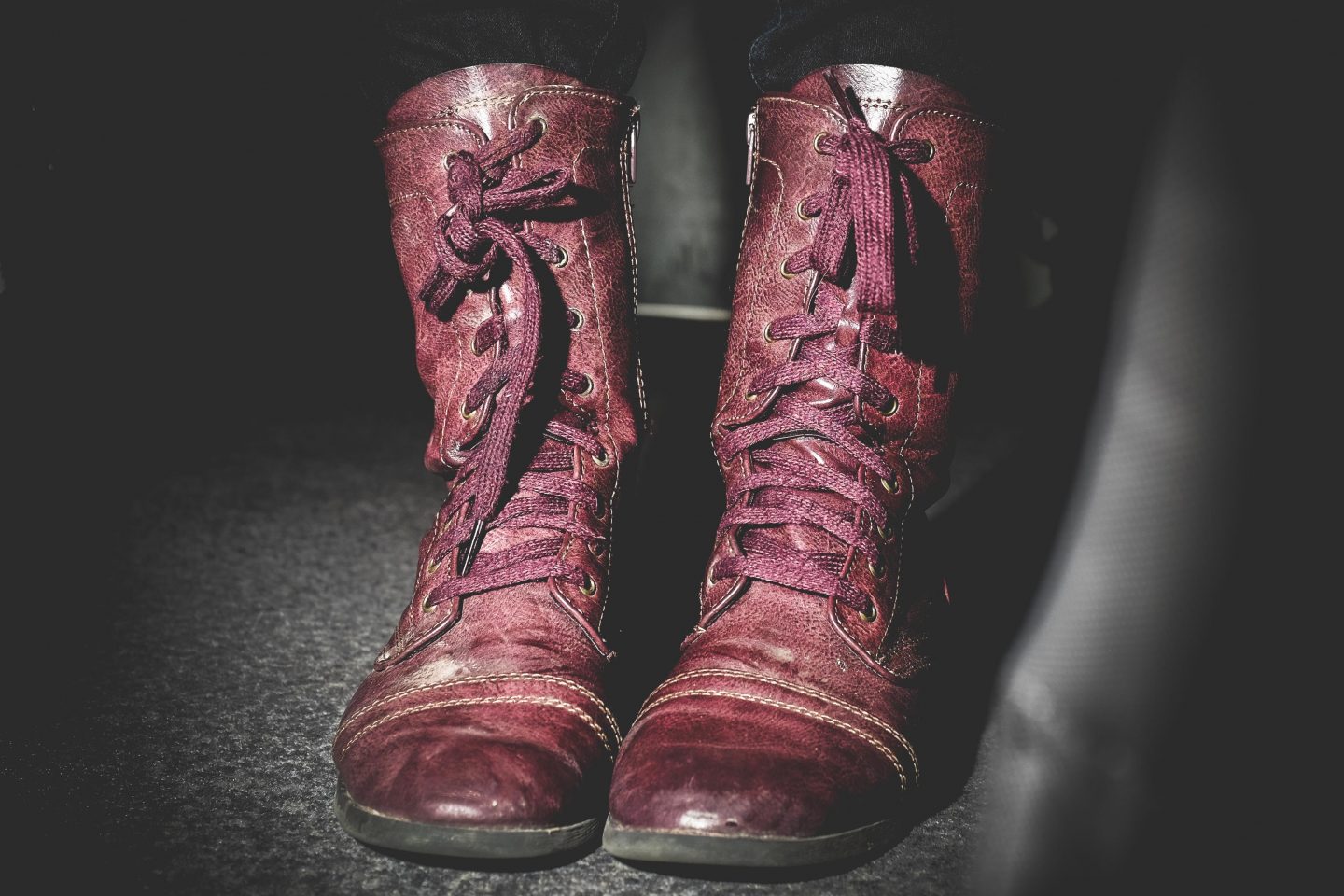Rachael Denhollander stared evil in the face
Sexual harassment and abuse on a personal and individual level is pure evil enough – but when it’s exposed on such a grand and long term scale like with Larry Nassar, the former Team USA gymnastics and Michigan State University doctor, it makes me want to throw up.
Larry has been named by some as the largest child sex offender in USA history, and in the recent court case, where he was charged with up to 175 years in prison, (and 60 years in prison for federal child pornography crimes), 156 women stood up to give victim statements about how he sexually abused them as athletes, and some as personal friends. The widespread scale of the abuse cannot be summarized here, nor should it be.
When you stare into the face of evil, it’s soul crushing.
In cases like these there can be a fascination with the perpetrator. Why did he do it? How did it start? Why did no one see any warning signs? When victims began to speak up, why did those receiving reports do nothing, or attempt to shut down the accusers? Those are important questions to ask but they should not overshadow the focus of the victims. Victims like Rachael Denhollander.
If you haven’t already, please watch Rachael Denhollander stand up and face her abuser in court. She was the first person to speak up publicly about Larry Nassar, empowering other victims to also speak up and share their stories – described as the ‘picture of poise in the courtroom’. The judge in the court case, Rosemarie Aquilina, called the 156 women who spoke up against Nassar a ‘sister army’, and one of the victims Mattie Larson commented, “I mean, you see Rachael, she’s inspirational. If it wasn’t for her I don’t know if I would have come out. It’s like our sisterhood army and she’s kinda like our General. I look up to her so much.”
Rachael Denhollander stared evil in the face and refused to cower. Her courage, bravery, commitment to truth, and unwavering hope in the gospel have been (and continue to be) an example to follow.
What has led to this?
I look around and our society is bursting at the seams with stories of widespread sexual brokenness. The sickness that has sat hidden deep inside for so long is now viciously coming out on a grand scale.
It includes the recent scientific proof of the dangers and damaging impact of pornography and the horrific stories of human trafficking that happen in our very own neighbourhoods and communities. From the movement of #MeToo that gained traction in the fall of 2017, empowering women across North America to step up with their experiences and stories of sexual harassment and abuse, to the #TimesUp campaign in early 2018 fighting sexual assault, harassment, and inequality in the workplace – it can be asked, what has led to this?
A simplistic and obvious answer is sin. We live in a world where people pursue their own selfish desires over the care, value, and worth of other people. In her statement to Larry Nassar, Rachael declared,
“You have become a man ruled by selfish and perverted desires, a man defined by his daily choices repeatedly to feed that selfishness and perversion. You chose to pursue your wickedness no matter what it cost others and the opposite of what you have done is for me to choose to love sacrificially, no matter what it costs me.”
The depth of Larry’s evil is sin and perverted desires. There’s no doubt that is what motivated him to use his entire ‘medical’ career to sexually abuse and mistreat hundreds of young girls. It’s sickening.
Yet, it’s all too easy to take a broad sweeping answer of “sin is the problem” and move on from there, feeling helpless to do anything about it. I mean, we live in a sinful world, right? These things just happen. In reality they do. But are we missing an even greater opportunity here to stand for justice and what is right?
In responses to cases like this, it’s too easy paint the perpetrator as 100% guilty without thinking how we, ourselves, can be enablers and minimizers. The perpetrator IS 100% guilty, but he doesn’t get there alone. Sadly, (and especially in the case of Larry Nassar) the perpetrator was surrounded by enablers and minimizers.
So as we look around at the sexual brokenness that saturates our society right now, we seek to answer, “what has led to this?”
In part, we all have.
A culture of minimization enables sexual perversion to thrive
This dawned on me earlier this fall when faced with another exposure story of sexual brokenness – one that felt too close to home. I wanted to scream, and cry, and demand to know: What happened? What led to this? Weren’t there warning signs? Why didn’t anyone stop this?
Why didn’t I say or do something when I had a chance to?
That last question haunted me as I was faced with my own failure to speak up. I didn’t say something because it was too easy to minimize – and this culture of minimization that we live in is enabling people like Larry Nassar, and cases of sexual harassment and abuse, to continue and thrive.
When I realized that I had felt something was wrong, and observed and experienced ‘warning signs’ yet brushed them aside and minimized them, I felt so much shame. How could I have done that? I trusted other people’s false perception that “everything was okay” instead of listening to my own gut feeling that told me something was off. If I had spoken up and said something earlier, perhaps other people would have been spared.
Minimization is to downplay the significance of an event or an emotion, and can be closely tied to dealing with feelings of guilt. When we see, think, or feel like something is wrong it can feel overwhelming (especially if we lack direct evidence or proof), all too often we choose to do nothing.
A culture of minimization enables sexual harassment and abuse to continue and thrive.
In a Christian culture this can be even more prominent. We often want to think the best of others. We don’t want to accuse. We want to give grace and second chances. We want to believe that people are who they claim they are, especially those in power.
However, ‘extending grace’ to others should not come at the expense of seeking truth and justice, and protecting the innocent. If God, the ultimate righteous judge, minimized our sin and never died for it on the cross because ‘it wasn’t a big deal’ – then it would be impossible for him to extend grace to us because we would be eternally separated from him, at the mercy of his wrath. To minimize the wrongdoing based on an argument of ‘grace’ is a vast injustice, and we should take great care to avoid it.
‘Extending grace’ to others should not come at the expense of seeking truth and justice, and protecting the innocent.
We have collective responsibility
In a culture of minimization, we all share responsibility. Western culture can be so individualistic, and we can fall back on that to protect ourselves when stories of sexual harassment and abuse surface.
“It wasn’t my job to say something or to ask questions.”
“I’m not responsible for what someone else did.”
“I didn’t know what was happening, so therefore I’m not to blame.”
But society doesn’t operate like that. A culture where sexual perversion can thrive, be enabled, and persist for so long is a culture that exists because collectively we’ve allowed it to. Whether that’s in the media, in the workforce, or in how we’ve been taught to deal with such issues.
What even goes beyond minimization can be active cover-up efforts taken in order to selfishly protect an individual, organization, or institution. The cover-up of Larry Nassar’s abuse by so many individuals in Team USA gymnastics and at Michigan State University, thus increasing the scope of his abuse, is one of the most horrifying facts of this case. I’m thankful at least that not every case of minimization leads to direct cover-up.
I’m so done with minimization. Looking around at other prominent women and leaders and stories coming out – I think others are done too. I’m done with brushing aside warning signs. I’m done with thinking, “It’s fine, don’t make an issue out of it.” I’m done with choosing the convenience of minimizing instead of stepping into the sometimes awkward space of seeking truth, justice, and using my voice to say, “No, that’s not appropriate”.
A culture where sexual perversion can thrive, be enabled, and persist for so long is a culture that exists because collectively we’ve allowed it to.
How much is a little girl worth?
It’s easy to minimize because it’s convenient and comfortable. It’s less messy. Asking questions, thinking critically, saying “no, that’s not okay” in a busy world feels like too much hassle. But as Rachael Denhollander asks, “How much is a little girl worth?”
Little girls are worth stepping into the awkward space of seeking truth and righteousness. They are worth asking hard questions. They are worth protecting and loving even when it comes at the expense of ourselves – our own comfort. Rachael states, “They are worth every protection the law can offer. Worth the maximum sentence [for perpetrators].”
Little girls are worth even more than that. For God, little girls are worth life itself.
Rachael spoke into that when she described how to live opposite to Larry was to love others at the expense of herself, instead of using others for her own selfish desires and pleasures. Her ability to love others this deeply – to die to herself – came from following the model of love that God himself set forth. Rachel stated in the courtroom:
“In our early hearings, you brought your Bible into the courtroom and you have spoken of praying for forgiveness. And so it is on that basis that I appeal to you. If you have read the Bible you carry, you know the definition of sacrificial love portrayed is of God himself loving so sacrificially that he gave up everything to pay a penalty for the sin he did not commit. By his grace, I, too, choose to love this way.
You spoke of praying for forgiveness. But Larry, if you have read the Bible you carry, you know forgiveness does not come from doing good things, as if good deeds can erase what you have done. It comes from repentance which requires facing and acknowledging the truth about what you have done in all of its utter depravity and horror without mitigation, without excuse, without acting as if good deeds can erase what you have seen this courtroom today.”
The scandal of the gospel
This message of sacrificial love and forgiveness isn’t just for the innocent, or all those little girls who lives were forever changed by Larry’s evil. That message is also for Larry – the evil doers and malevolent. This is the scandal of the gospel.
Jesus’ death on the cross brings restoration and healing for both the victims who have been sinned against and the predators who have sinned against others, perpetuating hate and evil. Jesus died on the cross for both Rachael Denhollander and Larry Nassar. For the victim, Jesus takes the pain and suffering onto himself on the cross, and for the guilty Jesus bears the ultimate punishment and wrath of God on the cross on their behalf.
God never minimizes. He stands for truth because he IS truth. Jesus says in John 14:6 “I am the way, and the truth, and the life; no one comes to the Father but through me.” God is the ‘straight line’ by which we can judge and know what is evil.
The gospel message is also for Larry – the evil doers and malevolent. This is the scandal of the gospel.
Like Rachael Denhollander we need to follow in God’s example and not minimize warning signs, feelings, or proof of sexual harassment and abuse. We cannot even minimize our own propensity towards selfishness and evil. Sin and evil are deceptive and grow overtime to become the level of sexual brokenness that is being exposed on mass levels in our culture.
“Larry, I can call what you did evil and wicked because it was. And I know it was evil and wicked because the straight line exists. The straight line is not measured based on your perception or anyone else’s perception, and this means I can speak the truth about my abuse without minimization or mitigation. And I can call it evil because I know what goodness is.”
Rachael Denhollander
We are all part of the problem, but we are all part of the solution.
The time to act is now.
The time is up on minimizing and enabling sexual harassment and abuse.
"*" indicates required fields
Share this!
About the Author



